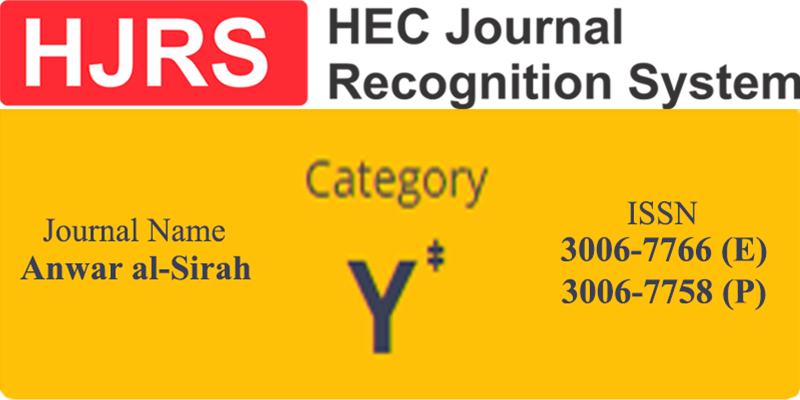سیرت النبیﷺ کی روشنی میں ماحولیاتی تغیرات سے متعلق ابلاغی وسیاسی ذمہ داریوں کا تحقیقی جائزہ
A Research Review of Media and Political Responsibilities related to Environmental Changes in the light of the Light of Sīrat e Tayyaba
DOI:
https://doi.org/10.5281/zenodo.13778617Keywords:
Environmental changes, Sīrat e Tayyaba, Media Perspective, Political Perspective, Climate Change, Flood ManagementAbstract
Allah Ta'ala illuminated the world's environment through the creation of humanity, exemplified by the sending of Prophet Muhammad ﷺ to Earth. In the blessed life of the Prophet ﷺ, guidance and education were imparted to future generations until the Day of Judgment, rendering his life complete and perfect. Maintaining environmental cleanliness constitutes a pivotal aspect of the Prophet's teachings, with Islamic doctrine considering cleanliness as half of faith. Allah endowed humanity with a beautiful environment for sustenance, appointing humans as stewards of the Earth's system of life. Any disruption to the natural order imperils humankind. In the contemporary scientific epoch, environmental and weather alterations primarily stem from air, land, and sea pollution, predominantly caused by carbon emissions and chemical usage. Political institutions bear the responsibility to initiate environmental detoxification measures, while media and research institutes should spearhead research programs, supported by governmental aid. This paper draws upon Quranic Surahs, Hadiths, online climate and weather change resources, and public opinions, synthesizing primary and secondary sources. The research aims to elucidate governmental responsibilities amidst recent flood scenarios.
Downloads
Published
How to Cite
Issue
Section
License
Copyright (c) 2024 Abida Begum

This work is licensed under a Creative Commons Attribution-NonCommercial 4.0 International License.
Copyrights of all research papers published in Journal of the 'ANWĀR AL-SĪRAH are held by the auther(s). However, as the 'ANWĀR AL-SĪRAH follows Open Access Policy under license CC by NC for global exchange of knowledge, readers are freely allowed to download, read and print the full text papers of 'ANWĀR AL-SĪRAH without prior permission from the 'ANWĀR AL-SĪRAH or the author(s) as long as they acknowledge/cite the 'ANWĀR AL-SĪRAH as the original source.


